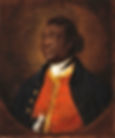Black British history in schools: Progress, Problems, and Possibilities
- Young Historians Project
- Feb 12, 2025
- 2 min read
Updated: Aug 19, 2025
As a trainee history teacher, the ways in which Black history is taught in British schools has long troubled me. Whilst some progress has been made since the landmark Macpherson Report of 1999, the UK has yet to achieve racial inclusivity in its national curriculum.
My experience working in a multi-ethnic London secondary school has shown me what is possible when diversity is truly embraced within the curriculum and amongst staff. Representation matters not just in media, but in school leadership teams, the classroom, and teaching materials. Students of colour can now feel that they are a part of British history and better understand how their heritage has shaped the society they live in.
Sadly, my school's approach is far from the norm. In 2020, the Guardian reported that only 5 of the 59 GCSE history modules available from major exam boards even mentioned Black people in Britain. For example, when we teach World Wars without acknowledging the contributions of Black Britons like Walter Tull, or the thousands who enlisted from India and the Caribbean, we're providing students with an incomplete education.
This issue is compounded by low numbers of history teachers from Black, Asian, Arab, or other ethnic minority backgrounds. One could argue that the lack of diversity among history teachers impacts how effectively and confidently Black history is taught in our classrooms. For example, a recent survey conducted by the Runnymede Trust found that 78% of UK history teachers wanted training on teaching about migration, and 71% on teaching about empire.
The Young Historians Project (YHP) plays a crucial role in addressing this gap by encouraging young Black people of African and Caribbean heritage to become historians and history teachers. This isn't just about teaching Black history during Black History Month – our objective is to integrate a diverse range of histories throughout the curriculum year-round. From writers, campaigners, nurses, artists, educators, sportsmen, and soldiers to poets, there is a rich tapestry of Black British historical figures spanning centuries to explore.
As I complete my teacher training, I look forward to contributing to this effort. YHP's mission to educate the public about Black history and encourage young Black people to become historians resonates deeply with my own aspirations. Its work shows that when we make Black British history more accessible, we enrich everyone's understanding of British history.
As one parent I interviewed from a focus group at the Wellingborough African Caribbean Association (WACA) stated: "History without Black history is like having no trousers on." I believe it's time to ensure our curriculum is fully dressed.

